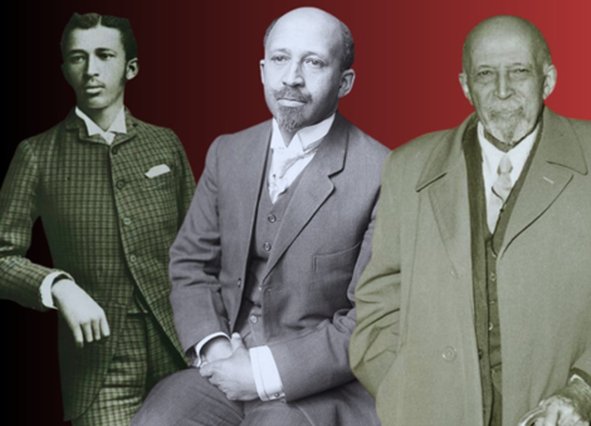|
Part 1 coming April 4th. Next week, the Ghosts of Plum Run Hour discusses the two meetings between Abraham Lincoln & August Willich, leader of 1848-49 revolutionary armies in Europe. The first meeting was on February 12, 1861, when Lincoln’s inaugural train tour took him to Cincinnati, where Willich delivered a speech in Lincoln’s honor. The speech was published in German and English that day in the newspaper Willich edited, the Cincinnati Republikaner. The second meeting was at the White House on May 8, 1863, Willich now a brigadier general in the Union Army, recently released from Confederate prison after being captured at the Battle of Murfreesboro December 31, 1862. Willich had just spent 4 months on trains and in prisons in the heart of the Confederacy, and Lincoln wanted to hear from him about it. Our two experts are David Dixon, author of the very first biography of August Willich, Radical Warrior - August Willich’s journey from German Revolutionary to Union General, and Andrew Zimmerman, editor of the most recent edition of Marx & Engels’ writings on the The Civil War in the United States - Karl Marx and Friedrich Engels. At the time of the White House meeting, Karl Marx was researching Das Kapital while writing about our Civil War in newspapers and to Engels. Time had cast the 1848 comrades to the four winds long ago. Communism split after the 1848 revolutions between Willich and Marx, and it was not just political. A Schapper-Willich wing faced off briefly against a Marx-Engels wing over control of the Communist League in London, specifically over how to continue the revolution in Germany. The Schapper-Willich wing was more popular, largely because of Willich’s deeds on the battlefield, which Willich promised to resume immediately. Marx had deduced that scientific socialism declared Willich’s zeal for acts, military and otherwise, was a window which had closed, and would not reopen until the dialectic said it would reopen. This is how Willich achieved the title “The Reddest of the Red”; Willich was too radical for Marx. During this split, things got very personal. Jennie Marx called Willich’s repeated attempts to bed her as “trying to coax out the worm that exists in every marriage.” Years later at the White House, oceans and more than a decade traveled, it was Willich seated across from a head of state with his sabre, having survived capital’s prisons to report on them to his president. Lincoln actually mentions his meeting with the Reddest of the Red in a dispatch, the same day, to his latest failed commander of the Army of Potomac, General Joseph Hooker. Hooker had just suffered the most humiliating defeat of the entire war, the Battle of Chancellorsville, considered Robert E. Lee’s greatest masterpiece and where Stonewall Jackson’s myth takes hold by his death at the hands of his own men’s fire. Willich, entering the White House that day May 8, two days after Chancellorsville ended, would have certainly heard the blame landing as it always did on the German immigrants of the 11th Corps, who famously were overrun and surprised by Jackson on the first day. “Blame it on the immigrants!” Dixon describes as the media narrative in Washington after Chancellorsville, noting, “Where have we heard that before?” Politically, the German immigrant vote was crucial to Lincoln’s electoral coalition across the country. A midterm election loomed in which anti-war “Copperheads”, northern pro-union voters opposed to the Emancipation Proclamation, were mounting candidates to save the Union as it was, with slavery. Racism and xenophobia was a cancer on the Union Army felt by Willich very personally that day in their meeting at the White House. Lincoln likely began the meeting addressing the matter. So, it is no surprise that in Lincoln’s dispatch to Hooker after the meeting, his characteristic wit both acknowledges the anti-immigrant fog engulfing the war effort, then swiftly deals with it. “He [Willich] says there was not a sound pair of legs in Richmond, and that our men, had they known it, could have safely gone in and burnt every thing & brought us Jeff Davis." How red was the Reddest of the Red? Join us on our YouTube channel to find out! AuthorTim Russo is author of Ghosts of Plum Run, an ongoing historical fiction series about the charge of the First Minnesota at Gettysburg. Tim's career as an attorney and international relations professional took him to two years living in the former soviet republics, work in Eastern Europe, the West Bank & Gaza, and with the British Labour Party. Tim has had a role in nearly every election cycle in Ohio since 1988, including Bernie Sanders in 2016 and 2020. Tim ran for local office in Cleveland twice, earned his 1993 JD from Case Western Reserve University, and a 2017 masters in international relations from Cleveland State University where he earned his undergraduate degree in political science in 1989. Currently interested in the intersection between Gramscian cultural hegemony and Gandhian nonviolence, Tim is a lifelong Clevelander.
0 Comments
|
Details
Archives
July 2024
Categories
All
|

 RSS Feed
RSS Feed